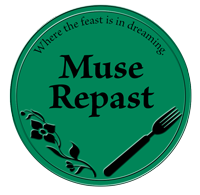Qoheleth Chapter One
There are six Sundays in Lent, and twelve chapters of Qoheleth. I will try to tackle two chapters a week. One at the beginning, and one at the end of each week. Here is chapter one, and some brief comments.
A translation of the first chapter of Qoheleth from the Anchor Bible Commentary by R.B.Y. Scott:
1 The Words of Qoheleth, Son of David, king in Jerusalem. 2 A vapor of vapors! Thinnest of vapors! All is vapor! 3 What has a man to show for all his trouble and effort during his brief lifetime under the sun? 4 One generation goes, another generation comes, but the earth always remains the same. 5The sun rises and the sun sets; and returning to its place, it rises there once more. 6 Blowing toward the south and veering toward the north, ever circling goes the wind, returning upon its tracks. 7 All the rivers flow continually to the sea, but the sea does not become full; whither the rivers flow, they continue to flow. 8 All words fail through weariness, a man becomes speechless; the eye cannot see it all, nor the ear hear the end of it. 9 Whatever has been is what will be, and whatever has been done is what will be done. 10 There is nothing new under the sun. When there is something of which one says, “Look now, that is new!”, it has been already in the ages before us. 11 As there is no memory of former things, so even of later things which have yet to be there will be no recollection among men of a still later time. 12 I, Qoheleth, was king over Israel in Jerusalem. 12 And I applied my mind to search and investigate by wisdom all that is done beneath the sky- a grievous affliction God has put on human beings to afflict them. 14 I observed all the deeds done under the sun, and saw that all was an empty breath and a grasping at the wind. 15 What is bent cannot be straightened, and what is missing cannot be made up. 16 I said to myself, “Well now, I have increased and added to my wisdom more than any who preceded me in Jerusalem, and my mind has had much experience of wisdom and knowledge . 17 So I turned my attention to the nature of wisdom and knowledge [on the one hand], and of foolish behavior and vulgarity [on the other]. I learned that this too was a grasping at the wind. 18 For with more wisdom comes more worry, and he who adds to his knowledge adds to his pain.
—
Central to understanding Qoheleth is the Hebrew word hbl. Unfortunately there is no good English equivalent for this word. The NRSV translates it as “Vanity,” the NIV as “Meaningless,” the Egalitarian Translation renders it “Illusory.” Above you can see it translated as “vapor.” In my first Seminary paper on Qoheleth, I noted that Seow’s Anchor Bible commentary (different from the version of Anchor I got the translation from above) lists the following possible meanings for hbl: breath, whiff, puff, and steam, anything that is superficial, ephemeral, insubstantial, incomprehensible, enigmatic, inconsistent, or contradictory. . . something that cannot be grasped or controlled. He also says it can mean: incomprehensible, unknowable, mysterious, ironic, enigmatic, and absurd. In short: it has so many meanings it is vain to try to translate!
When I wrote my first paper on Qoheleth, I spent 75% of it simply wrestling with this term in vain mistiness. I landed on using: “Mist between our fingers, says Qoheleth, Mist between our fingers! It is all trying to catch mist between our fingers.” I chose this as a compromise. It is a translation by not-translating. It is metaphorical paraphrase rather than a single word. My reasons for picking this translation has a lot to do with my reading of the entire text. My discussion of it here is already far too technical, and my paper does not make for much easier reading. But it is worth wrestling with. And I think over-simple translations like “vanity”or even “vapor”, lead to all kinds of problems in interpretation.
Already, you can see where my opening comments about reading Qoheleth as a book about Nihilism vs. a book about freeing us from anxiety are already largely in play before we can even get past the first word of the second verse. But the third verse can help us out, it interprets the hbl that comes before it. From verse three, we can see that Qoheleth is talking about works and our attempts to control things (like trying to catch mist through our fingers) and not the hopelessness of things themselves.This phrase about “toil at which we toil under the sun” (NRSV) repeats throughout the book, and serves to focus us in on human works.
Confusion about whether it is things or human works that Qoheleth despairs of abounds in translation as well. For instance the phrase from verse 9 (I think correctly translated above) is often rendered “All things are wearisome.” But the hebrew word is not clearly “things” as the way we would use the word “things.” It is closer to saying “all words are wearisome.” And most translations (like the NRSV) have footnoted this ambiguity. Because of the repetition of verse 3 and all these similar considerations: I argue that it is not faithful to what the words say to think Qoheleth is despairing of things in general, when Human Works are the central worry of almost every chapter.
The litany of verses 4-11 which traces the cyclical natures that Qoheleth sees all around, are not continuing words of despair, but set up the workings of the world against the workings of humans. Qoheleth goes back and forth between the world’s workings and human workings. The world is full of beautiful cycles and systems. But human life is not that way. It is linear, and we do not remember things like the wind and the sun. Qoheleth does not despair of the wind or the sun, or the rivers but only of our words to describe them, our inability to be satisfied with looking and with hearing (and so on). His conclusion in verses 14-18 is not that everything is pointless, but that all human striving after wisdom and greatness leads only to worry and pain. We cannot unbend what is bent. We cannot do anything but grasp at the wind. In all cases it is our want to control and change things that comes to vanity. It is not things themselves, the sun, or the wind, or the rivers that have a problem. It is us, who want to tame them and be lords over them.
This is a good passage to start with in Lent. It points us to the beauty of the world around us, and it humbles us at our own efforts to remember and be remembered. It shows us how much our worrying and striving and anxiety are not at pace with the rest of the world. There is little here that is encouraging, that is true. But just as Lent is a season of repentance that leads to a season of Joy, so this part of Qoheleth despairs of our works, and it will eventually lead to a place of Grace and merriment. The argument that our works are hbl results in a reliance on God to give us what is good.

